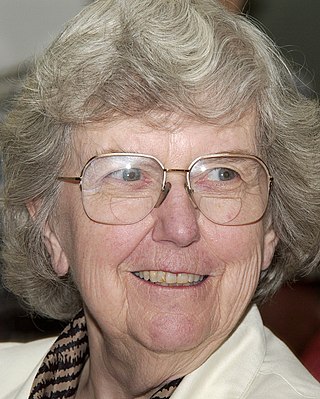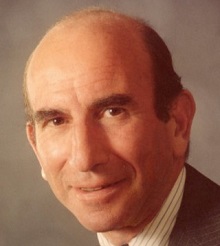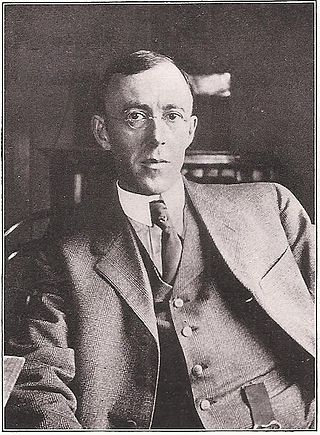Related Research Articles

Edward Donnall "Don" Thomas was an American physician, professor emeritus at the University of Washington, and director emeritus of the clinical research division at the Fred Hutchinson Cancer Research Center. In 1990 he shared the Nobel Prize in Physiology or Medicine with Joseph E. Murray for the development of cell and organ transplantation. Thomas and his wife and research partner Dottie Thomas developed bone marrow transplantation as a treatment for leukemia.

Mary Ellen Avery, also known as Mel, was an American pediatrician. In the 1950s, Avery's pioneering research efforts helped lead to the discovery of the main cause of respiratory distress syndrome (RDS) in premature babies: her identification of surfactant led to the development of replacement therapy for premature infants and has been credited with saving over 830,000 lives. Her childhood, mentors, drive, and education inspired Avery to be the visionary that she was. In 1991 President George H.W. Bush conferred the National Medal of Science on Avery for her work on RDS.
Ralph David Feigin was an American pediatrician whose influential book Textbook of Pediatric Infectious Diseases was in its sixth printing at the time of his death.
Louis Klein Diamond was an American pediatrician. He is known as the "father of pediatric hematology".

The John Howland Award is the highest honor bestowed by the American Pediatric Society (APS). Named in honor of John Howland (1873–1926), the award, with its accompanying medal, is presented annually by the American Pediatric Society for "distinguished service to pediatrics as a whole."

Melvin Malcolm Grumbach was an American pediatrician and academic who specialized in pediatric endocrinology. Called Edward B. Shaw Distinguished Professor of Pediatrics, Emeritus at the University of California, San Francisco School of Medicine, Grumbach was noted for his research and writing on the effect of hormones and the central nervous system on growth and puberty and their disorders; the function of the human sex chromosomes; and disorders of sexual development.
Catherine D. DeAngelis is the first woman and the first pediatrician to become editor of the Journal of the American Medical Association (JAMA). She has also edited several additional medical journals. Before assuming the editor's position at JAMA in 2000, DeAngelis was a professor and Vice Dean of Faculty at the Johns Hopkins School of Medicine. She is the 2015 recipient of the John Howland Award, the most prestigious award given by the American Pediatric Society (APS).
Allan Macy Butler (1894–1986) was an American pediatrician and Chief of the Children's Medical Services at Massachusetts General Hospital and a professor of Pediatrics at Harvard Medical School. A pioneer in health services, Butler sought to change the structure of the American "fee-for-service" system of health care to one based on government-paid medical care for the elderly and low-income people.

Thomas Benton Cooley was an American pediatrician and hematologist and professor of hygiene and medicine at the University of Michigan and Wayne State University. He was the director of the Pasteur Institute at the University of Michigan from 1903 to 1904. He worked in private practice in Detroit as the city's first pediatrician starting in 1905. He worked with the Babies' Milk Fund and helped to reduce Detroit's high infant mortality rate in the 1900s and 1910s. During World War I, Cooley went to France as the assistant chief of the Children's Bureau of the American Red Cross. He was decorated in 1924 with the cross of the Legion of Honor for his work in France. From 1921 to 1941, Cooley was the head of pediatric service at Children's Hospital of Michigan. Cooley gained acclaim for his scientific work in the field of pediatric hematology and is principally remembered for his discovery of, and research into, a form of childhood anemia that became known as Cooley's anemia. Cooley was also a professor at the Wayne University College of Medicine from 1936 to 1941.
Robert Edward Gross was an American surgeon and a medical researcher. He performed early work in pediatric heart surgery at Boston Children's Hospital. Gross was president of the American Association for Thoracic Surgery, a member of the National Academy of Sciences and a fellow of the American Academy of Arts and Sciences.
Frank Aram Oski was an American pediatrician. After holding several faculty positions at medical schools, he spent several years as the chair of pediatrics at Johns Hopkins School of Medicine. He was the founder and editor of the journal Contemporary Pediatrics, and he edited one of the most widely read textbooks in pediatrics.
Stuart Holland Orkin is an American physician, stem cell biologist and researcher in pediatric hematology-oncology. He is the David G. Nathan Distinguished Professor of Pediatrics at Harvard Medical School. Orkin's research has focused on the genetic basis of blood disorders. He is a member of the National Academy of Sciences and the Institute of Medicine, and an Investigator of the Howard Hughes Medical Institute.

Michael Weitzman is an American pediatrician specializing in public health and policy. He is known for his research focusing on the social and environmental determinants of child health. He has published over 150 articles in medical and scientific journals on the damaging effects of second-hand smoke, lead exposure, and countless other determinants of children's health and behavior. From 1999-2005 he served as the executive director of the Center for Child Health Research, a national research institute created by the American Academy of Pediatrics.
Wolf William Zuelzer was a German-American pediatric pathologist. He worked at the Children's Hospital of Michigan for 35 years, where he oversaw a large amount of pediatric research, particularly in the field of hematology. He received the John Howland Award in 1985.

Rustin McIntosh was an American pediatrician. From 1930 until 1960, he was the chief of pediatrics at the Babies Hospital of NewYork–Presbyterian Hospital and the Reuben S. Carpentier Professor of Pediatrics at Columbia University. He received the John Howland Award in 1961.

Philip A. Pizzo is an American professor, physician, and scientist. He is the David and Susan Heckerman Professor of Microbiology and Immunology, Emeritus at Stanford University, and founding director of Stanford's Distinguished Careers Institute. He served as the 11th Dean of the Stanford University School of Medicine from 2001 to 2012. He spent over two decades at the National Institutes of Health, and has devoted much of his medical career to the diagnosis, management, prevention and treatment of children with cancer and AIDS. He has also focused on the future of higher education, specifically for individuals in mid- to late-life. In 2022, he enrolled as a rabbinical student at the Academy for Jewish Religion, California.

John Howland was an American pediatrician who spent the majority of his career at Johns Hopkins Hospital, where he established the first full-time pediatric department in the United States. The John Howland Award, the highest honor given by the American Pediatric Society, is named after him.
Stephan A. Grupp is an American pediatric oncologist. He is the Chief of the Cell Therapy and Transplant Section in the Division of Oncology and Director of the Cancer Immunotherapy Program at the Children's Hospital of Philadelphia and Professor of Pediatrics at the Perelman School of Medicine at the University of Pennsylvania. In 2019, Grupp was elected a Member of the National Academy of Medicine.
Scott Allen Armstrong is an American pediatric oncologist and cancer biologist focused on chromatin-based control of gene expression in cancer and therapeutic discovery. Armstrong and his team were the first to isolate rare leukemia stem cells in a mouse model of leukemia.
Tara Olive Henderson is an American pediatric oncologist. As the Arthur and Marian Edelstein Professor in the Department of Pediatrics, she is also the Director of the Childhood Cancer Survivor Center, Director of Survivorship at the University of Chicago Comprehensive Cancer Center, and chief of Pediatric Hematology and Oncology at the University of Chicago.
References
- ↑ Law, Nicholas S.; Bosman, Christopher; Timothy, Jocelyn (October 12, 1995). International Who's who in Medicine. International Biographical Centre. ISBN 9780948875915 – via Google Books.
- ↑ "David G. Nathan, MD - Pediatric Hematology and Oncology". www.danafarberbostonchildrens.org.
- ↑ Benz, Edward J. (2007-04-02). "Introduction of David G. Nathan, MD". Journal of Clinical Investigation. 117 (4): 1107–1111. doi:10.1172/JCI32145. ISSN 0021-9738. PMC 1839812 . PMID 17404624.
- ↑ "Honorary Degrees". Harvard University.